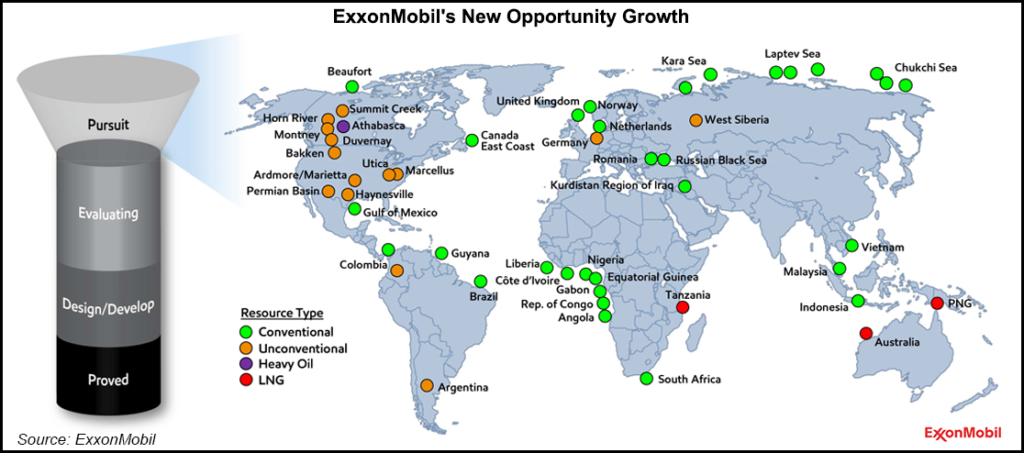ExxonMobil, Chevron Shareholders Again Defeat Unconventional Drilling Resolutions
ExxonMobil Corp. and Chevron Corp. shareholders on Wednesday once again sharply defeated resolutions that would have required more information to be provided about unconventional drilling operations, including the use of hydraulic fracturing.

In separate annual meetings, shareholders of the two biggest U.S. oil majors sided with management on every proposal put before them, whether it concerned compensation (yes) or enacting a climate change strategy (no).
Only 25% of ExxonMobil’s shareholders voted in favor of a recurring resolution that would have required a report every year detailing the risks involved in worldwide unconventional drilling operations. The board recommended voting against the measure, submitted by the Park Foundation of Ithaca, NY.
The foundation cited a report published last December, “Disclosing the Facts: Transparency and Risk in Hydraulic Fracturing Operations,” which ranked companies on how well they disclosed quantitative information to investors. ExxonMobil scored only 14% on its disclosure practices.
The investors wanted ExxonMobil to provide “detailed, quantitative, comparable data about how it is managing the risks and reducing the impacts of its natural gas extraction operations. Its Operations Integrity Management System fails to provide such reporting; as a generalized framework for companywide operations, it lacks criteria specific to shale energy operations.”
ExxonMobil CEO Rex Tillerson didn’t argue with any of the speakers who rose in support of the measure. He simply said the board was opposed.
“Modern drilling technologies and adherence to appropriate safety protocols allow unconventional resources, including oil and gas, to be developed in a manner that protects human health and the environment,” the board noted in the proxy. “ExxonMobil is committed to environmentally responsible operations – our environmental policy commits us to continuous efforts to improve performance.”
Last fall ExxonMobil issued its first report outlining how it assesses and manages risks associated with developing unconventional resources (see Shale Daily, Oct. 1, 2014; April 4, 2014).
Chevron shareholders defeated a similar resolution, with only 27% voting in favor of reporting more detailed information about the unconventional drilling operations. If approved, the reports would have been required beginning in September.
The board recommended a vote against the proposal because the company “has in place well-developed risk management systems in its natural gas from shale and tight oil development operations. We also maintain a strong commitment to stakeholder engagement and disclosure that supports these operations and addresses public concerns.”
At Chevron’s four most recent annual meetings, an average of 67% of the votes cast opposed a similar proposal (see Shale Daily, May 28, 2014).
© 2024 Natural Gas Intelligence. All rights reserved.
ISSN © 2577-9877 | ISSN © 1532-1266 | ISSN © 2158-8023 |
